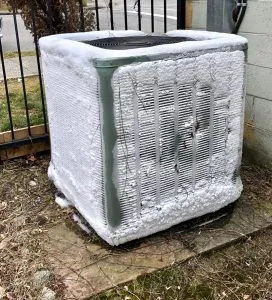
Replacing an HVAC system is expensive, which is one reason annual maintenance on the heating and cooling systems is important. This stretches out the lifespan of the system. Yet no system lasts forever. So, how long will your HVAC system last?
On average, HVAC systems last between 15 to 25 years. However, there are some things that will reduce or extend the lifespan of your system beyond that range. Here’s what you need to know so that you can start taking steps to extend your HVAC system’s life.
Desert Climates Make Systems Work Hard
Unfortunately, the systems in our service area are at a disadvantage. We’re in the desert, so your system will work harder and longer to maintain your home’s temperature. HVAC systems are designed to handle the heat in our area, but it does cause more wear and tear.
Cooling systems also often fail before heating systems because of the moisture that moves through them. Chemical exposure can corrode the copper elements inside your condenser and cause a final breakdown.
If you can stand it, you can raise the thermostat to a higher temperature or only use your system when it’s the hottest part of the day. This will make your system run less and extend the lifespan of your system, though you’ll have a hotter home.
What Are the Big HVAC Failures?
What does a technician look for when they decide it’s time to replace a system? For heating systems, it’s the heat exchanger. This is the barrier around where the fuel is burned that contains the exhaust while letting the heat into the home. If this starts leaking, it’s time to replace it.
For air conditioners and heat pumps, there are two big faults. One is a compressor failure. Without a compressor, the air conditioner cannot recycle the refrigerant. The other is a corroded or leaking condenser.
What Else Affects HVAC System Life?
If your HVAC installer installs a system that’s too large or too small, it will make the system run inefficiently. This usually isn’t a problem with professionals, but homeowners who buy window units could choose the wrong size.
Other factors that affect system life include:
- Systems with exposure to salt air
- Using the HVAC with the windows or doors open
- Improper installation
- Manufacturer defects
- Using the system far too much
Routine HVAC Maintenance Is Key
The number one thing to extend your system’s lifespan is regular maintenance. Annual tune-ups of your heating and cooling systems will detect problems before they get out of control, even before you notice them.
Many minor problems that only a technician can find can spiral into big ones and put the system in danger of early replacement. If you join our VIP Club, you get much of your maintenance for free and you get a discount on replacements that can offset much of the cost of the plan.
There are also things you can do between visits to maintain your system, like keeping the air filters clean and occasionally vacuuming out the vents. Your technician can show you how to do these tasks. Also, keep vegetation away from the outside of your unit.
Consider Replacement After 10 to 15 Years
Even though HVAC systems last around 15 to 25 years, consider replacement after 10 to 15 years. As the system ages, repair costs go up, and it takes more energy to run the system. Your HVAC system will last 10 to 15 years before you need to consider getting a new AC installed.
If your system has serious issues or is an energy hog, replacing your system could save you money in the long run through lower energy bills. When you contact us, our technicians at Ambient Edge can talk you through the pros and cons and tell you which systems could save you money this way.


